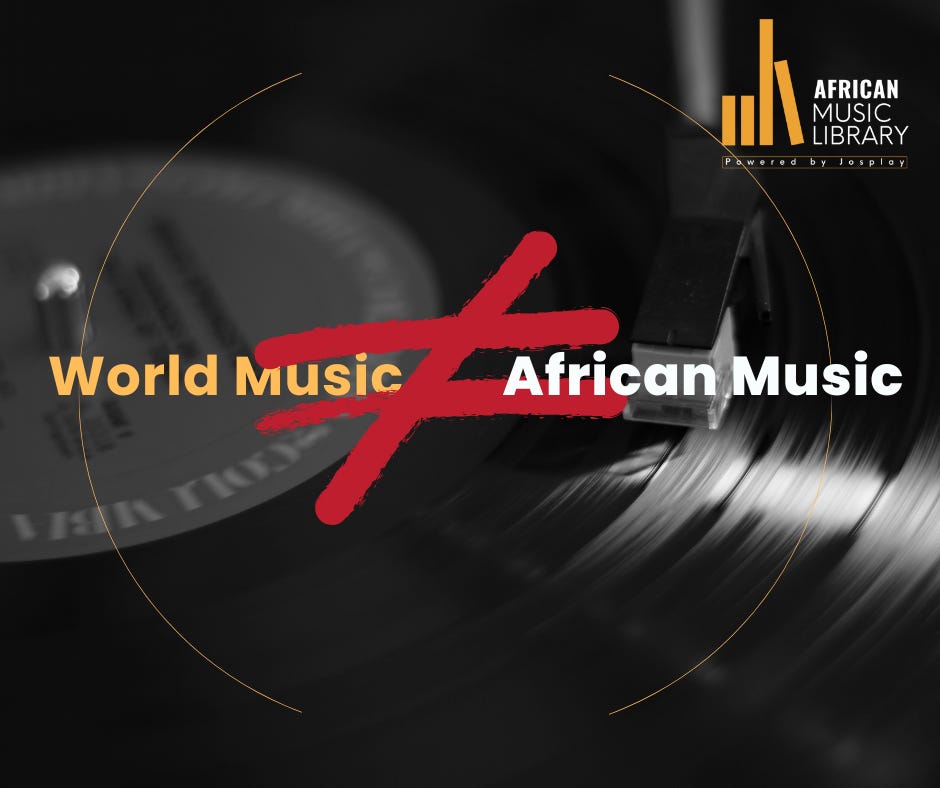Dear African Music Lovers,
Have you ever wondered why the vibrant rhythms of Lagos, the soul-stirring vocals of Cape Town, and the mesmerizing kora melodies of Mali are all relegated to the same section and termed, "world music?" What exactly does the term "world music" mean, and why do we accept this label for the incredibly diverse sounds of an entire continent?
The term "world music" refers to a category that emerged in the Western music industry during the 1980s. This classification often groups together various musical traditions from Africa, Asia, Latin America, and other non-Western regions, creating a troubling "everything else" bucket that erases crucial distinctions.
African music, with its rich cultural diversity spanning thousands of distinct traditions across 54 countries, frequently gets reduced to this catch-all "world music" category. This simplification overlooks the continent's profound musical complexity and innovation. Consider the difference between South Africa's energetic, township-born amapiano with its distinctive log drums and piano melodies versus Mali's desert blues tradition with its hypnotic guitar work and call-and-response vocals – both incredible traditions with little in common except their continent of origin.
The term "world music" creates a problematic binary: Western music versus everything else. This division inherently centres on Western musical traditions as the norm while positioning non-Western music as exotic or "other." When South African mbaqanga, Nigerian Juju music, Algerian raï, or Congolese soukous all become "world music," their unique cultural contexts and innovations are flattened.
Both African musicians and their music lovers must continue to rightfully push back against generic categorization. Artists like Angélique Kidjo, whose work blends Beninese traditions with contemporary influences; Youssou N'Dour, who revolutionized Senegalese mbalax; Salif Keita, the "Golden Voice of Africa" who transformed Malian music; and Fela Kuti, the pioneer of Afrobeat, have all created groundbreaking work that defies simple categorization, drawing from regional traditions while incorporating elements of funk, jazz, rock, and electronic music.
The truth is that when we describe music from Europe, we don't lump Italian opera, German electronic music, British folk, and their contemporary sounds into one category. The same specificity should be extended to African music, recognizing genres like Afrobeats, highlife, amapiano, mbalax, and countless others on their own terms.
The vibrant musical landscape of Africa deserves recognition beyond simplistic labels and we all have a role to play in educating the world about the rich diversity in African music.
How can you contribute?
Start by learning about specific genres and sharing this knowledge with others.
Use precise terminology when discussing African music.
Support platforms such as Josplay that properly categorize and contextualize these musical traditions.
Attend concerts and workshops featuring African musicians to deepen your understanding and appreciation.
We must commend the African Music Library for the impressive work done in documenting some of the African music genres across the continent and in the diaspora. Start your learning journey there, but don't stop – seek out podcasts, documentaries, and books that delve into specific musical traditions.
So, what's one new African music genre you're excited to explore after reading this? Perhaps the rhythmic complexities of Ghanaian highlife, the contemporary pulse of Nigerian Afrobeats, or the intricate harmonies of South African isicathamiya?
Don’t forget to share your discoveries with us in the Comments and also help spread appreciation for the specific uniqueness of each tradition!
Yours in African Music,
Librarian
African Music Library





World music is short for third world music, I read somewhere